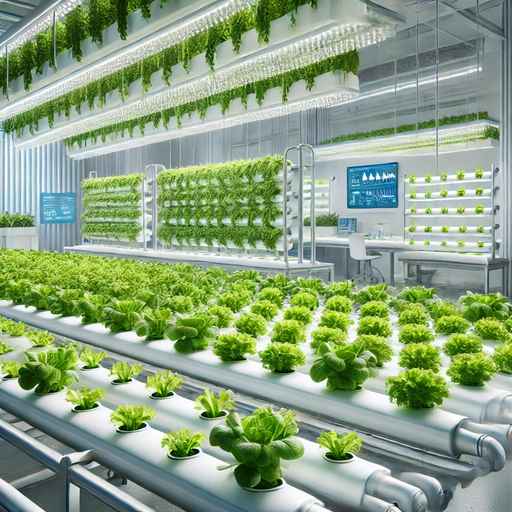What is Hydroponic Farming?
Hydroponic farming is a method of growing plants without the use of soil. Instead, plants are cultivated in a nutrient-rich water solution that provides all the essential minerals and nutrients they need to grow. This innovative farming technique allows plants to thrive in controlled environments, making it highly efficient and sustainable.
How Hydroponic Farming Works
- Growing Medium: In hydroponics, plants don’t grow in soil. Instead, they are supported by inert materials like cocopeat, rock wool, perlite, or clay pellets, which help provide structure and proper aeration. Choosing the right quality cocopeat in hydroponic farming is essential to get effective results.
- Nutrient Solution: A carefully balanced solution containing water and essential nutrients is delivered directly to the plant roots.
- Controlled Environment: Factors like light, temperature, humidity, and pH levels are optimized to ensure plant growth.
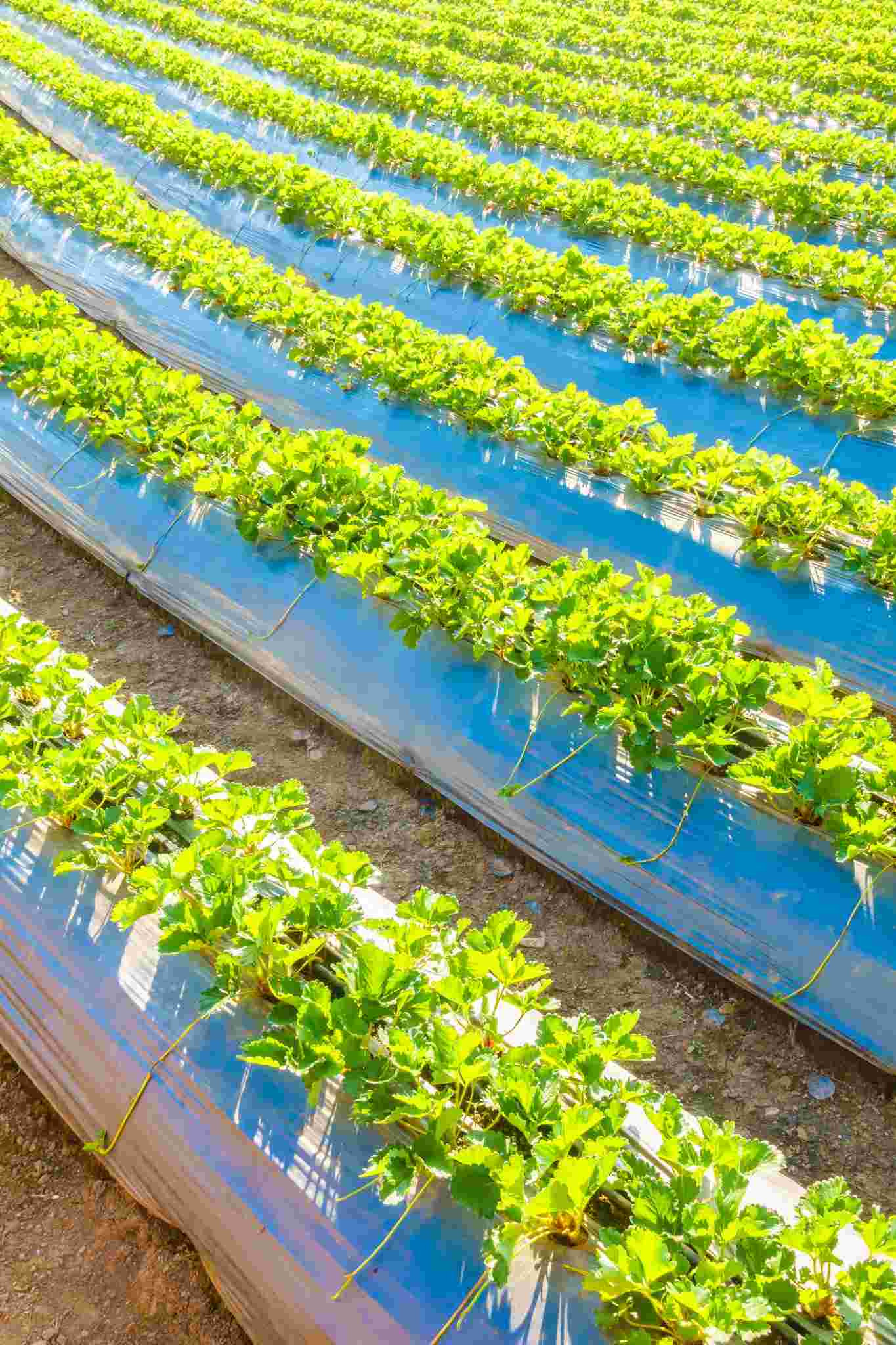
Among the essential components of this modern farming method, cocopeat plays a vital role. Tamil Nadu, with its vast coconut plantations and coir industries, is setting a benchmark for high-quality production that meets the demands of hydroponic farms across India. Let’s explore how this innovative material is reshaping soilless farming, with real-world applications in crops like:
Why Tamil Nadu is the Hub for Coir Pith Production
Tamil Nadu is a significant contributor to India’s coconut production, accounting for over 31% of the country’s yield (as per Coconut Development Board data). The state produces an estimated 7 billion coconuts annually, providing a reliable raw material base for coir pith processing.
Key Reasons for Leadership in Coir Pith Production:
- Abundance of Raw Material: The region’s vast coconut plantations ensure a steady supply of husks, the primary resource for coir products.
- Advanced Processing Facilities: Modern units utilize innovative techniques to produce high-grade coir pith that supports various agricultural applications.
- Export Excellence: Local suppliers export to over 90 countries, playing a crucial role in global hydroponic farming practices.
The strict quality control measures adopted by manufacturers in this region ensure that coir pith is free of salts and impurities, making it an excellent choice for hydroponic applications.

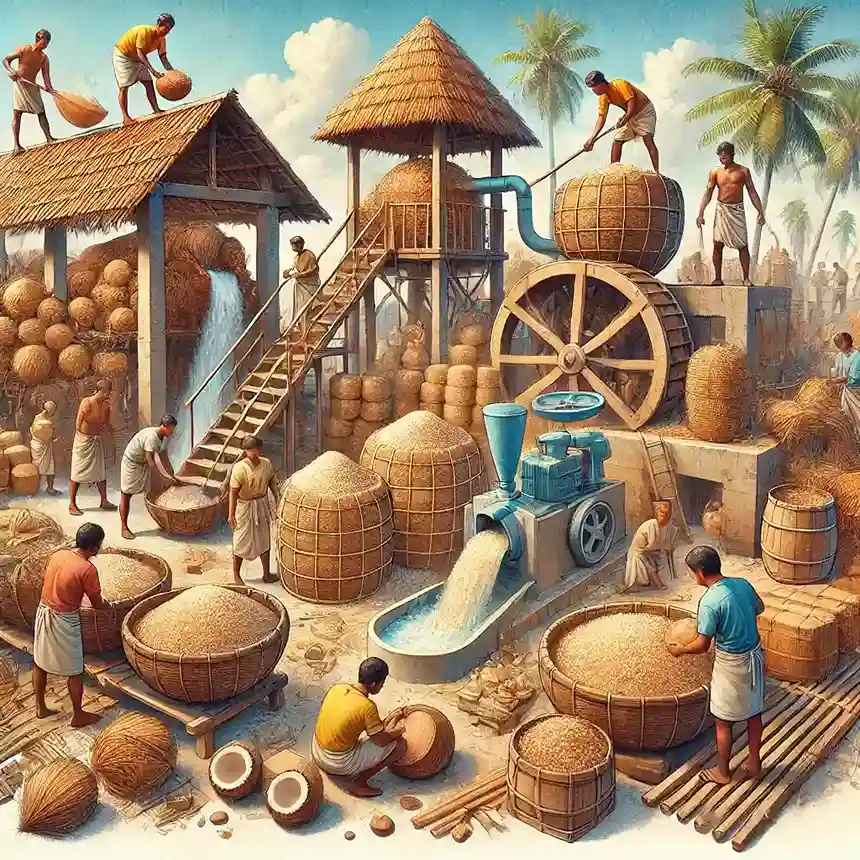

How does cocopeat improve root health in hydroponic systems?
Can cocopeat replace soil in hydroponic farming?
Cocopeat provides a balanced environment with optimal moisture and air circulation, promoting healthy root growth.
It serves as a sustainable and soilless alternative for growing plants in hydroponic systems.
1. Seed Germination
Tamil Nadu’s coco pith is widely used as a growing medium for seed germination due to its exceptional water retention and aeration properties. For instance:
- Blueberries: These water-sensitive plants thrive when seeds are germinated in coco pith. The medium provides a stable and moist environment necessary for their delicate roots to develop.
- Cannabis: Coco pith ensures a controlled environment for cannabis seed germination, allowing better root establishment and higher germination rates.
2. Nutrient Consideration
Coco peat alone does not have nutrients, so you need to add them using hydroponic or liquid fertilizers.
Hydroponic Nutrients
- These fertilizers contain essential macronutrients (nitrogen, phosphorus, potassium) and micronutrients (calcium, magnesium, iron, etc.).
- They dissolve in water and are easily absorbed by plants.
How to Apply
- Mix the hydroponic nutrients in water as per the instructions on the label.
- Use the prepared solution to water the coco peat regularly.
Monitoring Tips
- pH: Check the solution’s pH and keep it between 5.5 and 6.5 for healthy plant growth.
- EC (Electrical Conductivity): Measure EC to make sure the nutrient concentration suits your plants.
In hydroponic systems, cocopeat acts as an efficient carrier for nutrient solutions, delivering essential nutrients directly to plant roots. This helps optimize plant growth and minimizes waste.
Examples:
- Cucumbers: Cocopeat allows precise nutrient delivery, ensuring uniform growth and higher yields.
- Strawberries: By holding nutrients longer while maintaining proper aeration, cocopeat supports the production of juicy, evenly ripened strawberries.
3. Soilless Farming
Cocopeat replaces soil in hydroponics, offering a sterile and pest-free medium. This ensures plants grow healthier without exposure to soil-borne diseases or weeds.
Examples:
- Blueberries: Require acidic growing conditions; cocopeat’s neutral pH can be adjusted easily to suit their needs.
- Cannabis: Cocopeat ensures a pest-free environment, which is crucial for this high-value crop.
4. How to Grow Plants with Coco Peat and Hydroponic Nutrients
-
Preparation:
- Hydrate the coco peat by soaking it in water until it expands.
- Fill containers or grow bags with the hydrated coco peat.
-
Planting:
- Place seeds or seedlings into the coco peat.
- Ensure proper spacing based on the plant’s growth requirements.
-
Feeding:
- Use the nutrient solution to water the plants.
- Start with a diluted solution for seedlings and gradually increase concentration as the plants grow.
-
Drainage:
- Ensure that the containers have proper drainage to avoid waterlogging.
5. What are the Advantages of Using Hydroponic Nutrients with Coco Peat
- Precise Nutrient Control: You can tailor the nutrient mix to the specific needs of your plants.
- Clean and Pest-Free: Coco peat is free from soil-borne pests and diseases.
- Suitable for Various Crops: Ideal for leafy greens, herbs, tomatoes, peppers, and even flowering plants.
6. Common Challenges
Nutrient Deficiency:
If not managed properly, plants may suffer from deficiencies (e.g., yellowing leaves due to nitrogen deficiency). Regular monitoring is key.
Salt Buildup:
Over time, salts from the nutrients can accumulate in the coco peat. Flush with clean water periodically to prevent this.
Overwatering:
While coco peat retains water, overwatering can lead to root rot. Ensure proper drainage.
Growing plants in coco peat with hydroponic nutrients is an effective and sustainable method, particularly for those looking to avoid soil-based systems. With proper care and nutrient management, you can achieve healthy, thriving plants in a soilless setup!

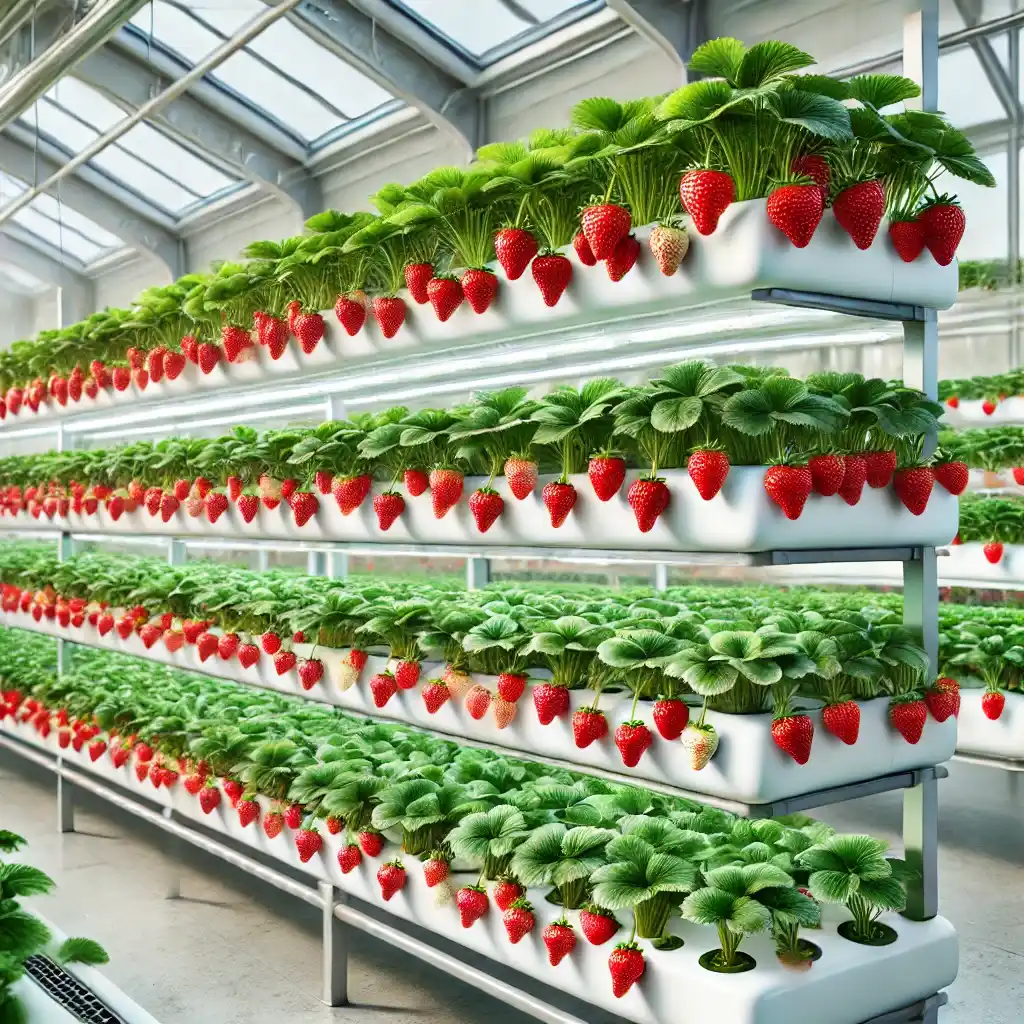
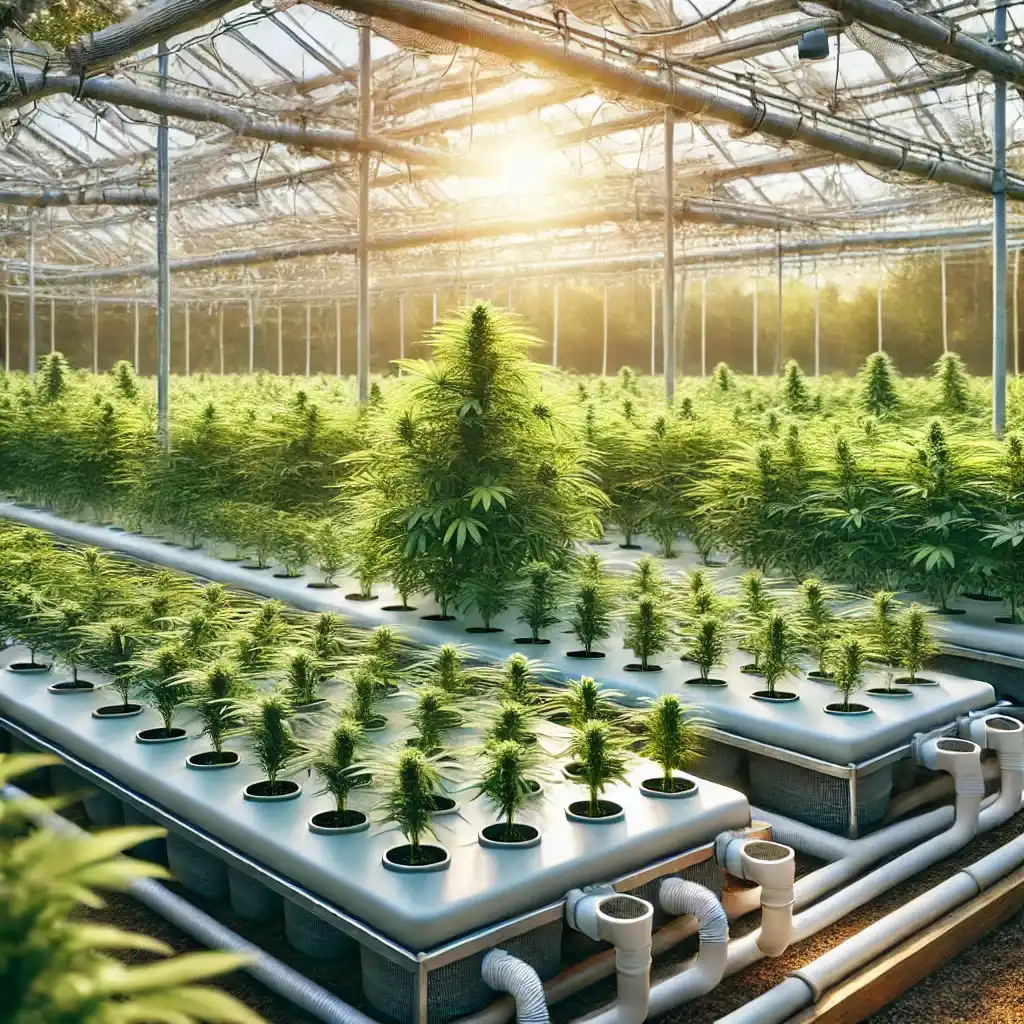
How Tamil Nadu’s Coco Pith is Driving Growth in Hydroponic Farming
Tamil Nadu’s cocopeat is empowering hydroponic farms in several ways:
Boosting Crop Yield
This growing medium enhances root development and nutrient absorption, leading to healthier plants and higher yields.
Example: A hydroponic strawberry farm in Maharashtra reported a 20% increase in yield after switching to cocopeat for its superior water retention and aeration.
Reducing Resource Usage
Farmers using high-quality coir products have achieved significant savings in water and fertilizer consumption. The material retains water up to 10 times its weight, reducing irrigation needs.
Example: A cucumber farm in Karnataka cut its water consumption by 30% by incorporating this sustainable medium into its hydroponic setup.
Improving Scalability
The consistent quality of coir-based materials supports the expansion of hydroponic farms, even in regions with poor soil conditions.
Example: Hydroponic cannabis farms in Himachal Pradesh have scaled operations, attributing success to the uniformity and reliability of this medium.
Scientific Advantages of Tamil Nadu’s Cocopeat
Salt-Free Composition: The material is thoroughly washed to remove excess sodium, making it ideal for sensitive crops like blueberries and cannabis.
Balanced Cation Exchange Capacity (CEC): Enables efficient absorption of essential nutrients like potassium and magnesium, promoting better yields for high-value crops.
Uniform Granularity: Ensures consistent performance across hydroponic systems, which is crucial for commercial-scale farming.
Eco-Friendly and Renewable: Cocopeat is a sustainable byproduct of coconut husks, offering an environmentally friendly alternative to traditional soil-based farming methods.
Future of Hydroponics with Tamil Nadu’s Cocopeat
The rising demand for sustainable farming solutions is propelling hydroponics into mainstream agriculture. Coir-based growing media from this region is poised to play a significant role, with innovations such as:
- Bio-Enhanced Growing Media: Enriched with beneficial microbes to enhance plant health and resilience.
- Compressed Blocks: Designed for efficient transport and storage, catering to both small-scale and large-scale farms.
- Custom Nutrient Mixes: Tailored blends to meet the specific requirements of crops like strawberries and cannabis.
As the market for hydroponic produce expands, suppliers in Tamil Nadu are ensuring that high-quality coir products remain accessible and affordable for farmers across the nation.
Cocopeat is transforming hydroponic farming by offering a sustainable, cost-effective, and efficient growing medium. Its unmatched quality and versatility make it indispensable for crops like blueberries, strawberries, cannabis, and cucumbers. By choosing a trusted supplier from this region, hydroponic farms can achieve higher productivity, reduced resource usage, and healthier crops.
Whether you’re starting a small-scale urban farm or managing a large commercial hydroponic setup, high-quality coir-based products from Tamil Nadu can help unlock your farming potential. Begin your journey toward sustainable agriculture with the finest growing media in India today!

